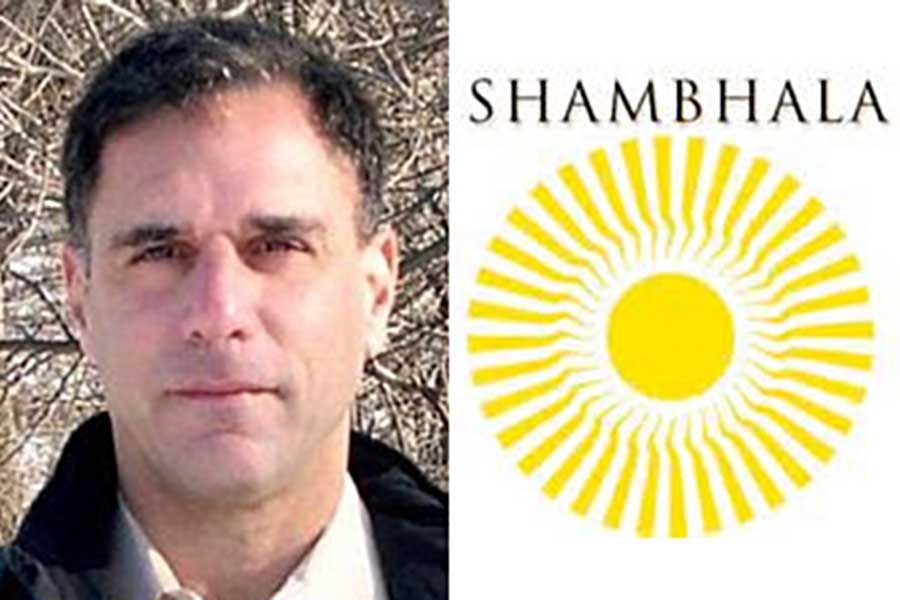“Queer Warriorship,” an introduction to meditation and mindfulness for the LGBT community, will take place Nov. 21 at Philadelphia Shambhala Meditation Center, 2030 Sansom St.
Eric Spiegel, a teacher within the Shambhala tradition, is giving the talk, which begins 7 p.m. The program is free and open to the public, although registration is encouraged.
Spiegel is uniquely qualified to address this topic. A longtime practitioner of meditation and an adherent of the Shambhala tradition, he has provided pastoral care to people with HIV and taught LGBT people in groups like Queer Dharma. For several years, he was also the Stonewall Community Foundation’s treasurer.
According to Anna Murphey, a volunteer at Shambhala and a self-described queer woman, local LGBT Buddhists are eagerly anticipating Spiegel’s talk.
“We were interested in inviting him to come to Philadelphia because we really value the contribution that he’s making,” Murphey said. “We see that there’s a lot of interest and excitement about making Shambhala more open and diverse and really meeting the needs of this community, which in Philadelphia is significant.”
Murphey noted that many LGBT individuals are raised in faiths that are often unwelcoming to them, and sometimes downright hostile. In contrast, Shambhala offers them an opportunity to explore their spirituality with like-minded people in an accepting environment.
“The Shambhala teachings really emphasize the basic goodness of every person. Part of why we come together and practice meditation is to get in touch with our own innate basic goodness and extend that to others,” she said.
Shambhala is a relatively recent offshoot of Buddhism, an ancient faith tracing its roots back to the 5th century BCE, or thereabouts. According to scholars, the Buddha was born in northern India in the area now called Nepal. This faith, a major world religion, was developed from his original teachings. It has since has branched out into several varieties, including Theravada and Zen.
Shambhala was introduced in the 1970s by Chögyam Trungpa, a Tibetan monk who fled his country in 1959 after it was annexed by China. That experience, combined with his encounter with the West, led Trungpa to formulate a variant of Buddhism stressing the “Shambhala vision.” Within Buddhism, Shambhala is a legendary kingdom renowned for the wisdom and compassion of its people.
Trungpa’s nonsectarian, ecumenical version of Buddhism found an especially receptive audience in the United States. Now there are numerous Shambhala Meditation Centers throughout North America and Europe.
Spiegel’s lifelong engagement with Shambhala stretches back to 1971. At 19, he was given a copy of Trungpa’s book, “Meditation in Action.” Shortly afterwards, he traveled to Boulder, Colo., and worked at Naropa University, which Trungpa founded in 1974.
Today, after a lifetime of study and meditation, Spiegel is designated Acharya, a Sanskrit word meaning teacher. Within this tradition, Acharyas are empowered to travel to Shambhala Meditation Centers to teach and offer programs.
As a teacher, one of Spiegel’s challenges is making an ancient faith with a tradition of monastic life and solitary meditation relevant to the 21st century.
“Now, suddenly, here we are in this very modern world where everybody has families and everybody has jobs and careers. There’s really a sense that we’re doing this within our life rather than that we’re leaving our life to pursue spiritual practice. Anything that’s going to have to work for us has to become incorporated into our world,” Spiegel said.
Spiegel acknowledged that navigating the conflicting demands of modern life is not easy. For LGBT people, that difficulty can be compounded by lingering vestiges of discrimination, shame and other stressors. Within Shambhala, he pointed out, is a concept known as “warriorship,” which may offer help.
“The Shambhala tradition in particular really highlights that and talks about a balance between, you could say, gentleness or kindness and strength, strength as in courage or fortitude,” he said.
That strength manifests itself as having the heart or energy to live life openly, with courage and compassion, both for oneself and for others.
Members of the LGBT community, Spiegel said, “are very aware of their vulnerability and their sense of exposure and, at the same time, in order to be themselves in the world it really takes a lot of courage to find their own personal way of expressing their wisdom, their being, their qualities.”
Murphey, for one, has found this spiritual path fruitful, so much so that last spring she officially became a Buddhist by taking her “refuge vows” under Spiegel’s direction. For her, it was the right step.
“It has helped me to be kinder toward myself and more accepting of my own experience and better able to communicate more effectively with others,” she said. “I think it goes beyond my sexual orientation and my identity, but I do think it’s related.”
For more information, visit www.facebook.com/PhiladelphiaShambhalaCenter.

